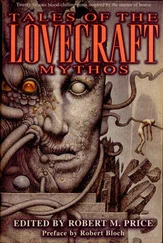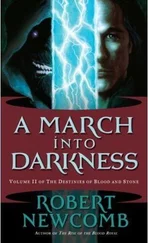Robert Pirsig - Lila. An Inquiry Into Morals
Здесь есть возможность читать онлайн «Robert Pirsig - Lila. An Inquiry Into Morals» весь текст электронной книги совершенно бесплатно (целиком полную версию без сокращений). В некоторых случаях можно слушать аудио, скачать через торрент в формате fb2 и присутствует краткое содержание. Жанр: Современная проза, на английском языке. Описание произведения, (предисловие) а так же отзывы посетителей доступны на портале библиотеки ЛибКат.
- Название:Lila. An Inquiry Into Morals
- Автор:
- Жанр:
- Год:неизвестен
- ISBN:нет данных
- Рейтинг книги:3 / 5. Голосов: 1
-
Избранное:Добавить в избранное
- Отзывы:
-
Ваша оценка:
- 60
- 1
- 2
- 3
- 4
- 5
Lila. An Inquiry Into Morals: краткое содержание, описание и аннотация
Предлагаем к чтению аннотацию, описание, краткое содержание или предисловие (зависит от того, что написал сам автор книги «Lila. An Inquiry Into Morals»). Если вы не нашли необходимую информацию о книге — напишите в комментариях, мы постараемся отыскать её.
Lila. An Inquiry Into Morals — читать онлайн бесплатно полную книгу (весь текст) целиком
Ниже представлен текст книги, разбитый по страницам. Система сохранения места последней прочитанной страницы, позволяет с удобством читать онлайн бесплатно книгу «Lila. An Inquiry Into Morals», без необходимости каждый раз заново искать на чём Вы остановились. Поставьте закладку, и сможете в любой момент перейти на страницу, на которой закончили чтение.
Интервал:
Закладка:
Phædrus saw that the question was thrown off by a connotation of witch. This word alone loaded the case against the priests since anyone who calls someone else a witch is obviously a bigoted persecutor. But did they really call him a witch? A witch is a Druid priestess reduced by legend to an old crone who wears a pointed black hat and rides a broomstick in front of the moon on Halloween. Was that what they were calling him?
In his koan-like recycling of the event in his mind Phædrus came to think that Benedict had given the event an interpretation that didn’t do it justice. She was finding stories to support her thesis that different cultures create different personality traits, which is important, and undoubtedly true. But this man was more than just a misfit. There was something deeper than that going on.
Misfit is one of those words that seem to explain things but does not. Misfit says only that something is not explained. If he was a misfit why didn’t he leave? What persuaded him to stay? It certainly wasn’t timidity. And why did the citizens of Zuni change their minds and make this former witch their governor? There’s no indication that he changed or they changed. She said he turned an incidental talent to account in order to satisfy his need for social recognition. Probably so, but Zuni or no Zuni, it takes stronger social forces than a good singing voice and a need for social recognition to turn a misfit and torture victim into a governor.
How did he do it? What were his powers ? Was there something special in the way Pueblo Indians think that after ten thousand years of continuous culture they would let a drunkard and a window-peeper get away with this?
Phædrus did not think so. He thought a better name for him might have been sorcerer, or shaman, or brujo, a Spanish term used extensively in that region that denotes a quite different kind of person. A brujo is not a semi-mythical, semi-comic figure that rides a broomstick but a real person who claims religious powers; who acts outside of and sometimes against the local church authorities.
This was not a case of priests persecuting an innocent person. This was a much deeper conflict between a priesthood and a shaman. A passage from the anthropologist, E. A. Hoebel, confirmed Phædrus' idea:
Although in many primitive cultures there is a recognized division of function between priests and shamans, in the more highly developed cultures in which cults have become strongly organized churches, the priesthood fights an unrelenting war against shamans… Priests work in a rigorously structured hierarchy fixed in a firm set of traditions. Their power comes from and is vested in the organization itself. They constitute a religious bureaucracy.
Shamans, on the other hand, are arrant individualists. Each is on his own, undisciplined by bureaucratic control; hence a shaman is always a threat to the order of the organized church. In the view of the priests they are presumptive pretenders. Joan of Arc was a shaman for she communed directly with the angels of God. She steadfastly refused to recant and admit delusion and her martyrdom was ordained by the functionaries of the Church. The struggle between shaman and priest may well be a death struggle.
For weeks Phædrus returned to these questions before he saw that the key lay in the war priest’s statement that his powers had been broken. Something very grave had occurred. The priest refused to return to a priestly office after return from the penitentiary. What had occurred had been enormous.
Phædrus concluded that a huge battle had taken place for the entire mind and soul of Zuni. The priests had proclaimed themselves good and the brujo evil. The brujo had proclaimed himself good and the priests evil. A showdown had occurred and the brujo had won!
Phædrus began to suspect that Benedict missed all this because she was trained in the objectivity of science by Boas. She tried to show only those aspects of Zuni culture that were independent of the white observer.
This explains why the brujo is analyzed only in terms of relations within his own culture, although by her own accounting he was very much in contact with the whites. It was the white man to whom he sent for help and who saved him. It was the white anthropologists, presumably, who took dictation of all his songs and stories and made him well known in books of which his tribesmen could not have been ignorant.
Phædrus concluded that the real reason the people of Zuni made the brujo governor had to be because of this. The brujo had shown he could deal successfully with the one tribe that could easily wipe them out any time it wanted to. It wasn’t just a sweet singing voice that made him governor of Zuni. He had real political clout.
Sometimes you can see your own society’s issues more clearly when they are put in an exotic context like that of the brujo in Zuni. That is a huge reward from the study of anthropology. As Phædrus thought about this context again and again it became apparent there were two kinds of good and evil involved.
The tribal frame of values that condemned the brujo and led to his punishment was one kind of good, for which Phædrus coined the term static good. Each culture has its own pattern of static good derived from fixed laws and the traditions and values that underlie them. This pattern of static good is the essential structure of the culture itself and defines it. In the static sense the brujo was very clearly evil to oppose the appointed authorities of his tribe. Suppose everyone did that? The whole Zuni culture, after thousands of years of continuous survival, would collapse into chaos.
But in addition there’s a Dynamic good that is outside of any culture, that cannot be contained by any system of precepts, but has to be continually rediscovered as a culture evolves. Good and evil are not entirely a matter of tribal custom. If they were, no tribal change would be possible, since custom cannot change custom. There has to be another source of good and evil outside the tribal customs that produces the tribal change.
If you had asked the brujo what ethical principles he was following he probably wouldn’t have been able to tell you. He wouldn’t have understood what you were talking about. He was just following some vague sense of betterness that he couldn’t have defined if he had wanted to. Probably the war priests thought he was some kind of egotist trying to build his own image by tearing down tribal authority. But he showed later on that he really wasn’t. If he’d been such an egotist he wouldn’t have stayed with the tribe and helped keep it together.
The brujo’s values were in conflict with the tribe at least partly because he had learned to value some of the ways of the new neighbors and they had not. He was a precursor of deep cultural change. A tribe can change its values only person by person and someone has to be first. Whoever is first obviously is going to be in conflict with everybody else. He didn’t have to change his ways to conform to the culture only because the culture was changing its ways to conform to him. And that is what made him seem like such a leader. Probably he wasn’t telling anyone to do this or to do that so much as he was just being himself. He may never have seen his struggle as anything but a personal one. But because the culture was in transition many people saw this brujo’s ways to be of higher Quality than those of the old priests and tried to become more like him. In this Dynamic sense the brujo was good because he saw the new source of good and evil before the other members of his tribe did. Undoubtedly he did much during his life to prevent a clash of cultures that would have been completely destructive to the people of Zuni.
Читать дальшеИнтервал:
Закладка:
Похожие книги на «Lila. An Inquiry Into Morals»
Представляем Вашему вниманию похожие книги на «Lila. An Inquiry Into Morals» списком для выбора. Мы отобрали схожую по названию и смыслу литературу в надежде предоставить читателям больше вариантов отыскать новые, интересные, ещё непрочитанные произведения.
Обсуждение, отзывы о книге «Lila. An Inquiry Into Morals» и просто собственные мнения читателей. Оставьте ваши комментарии, напишите, что Вы думаете о произведении, его смысле или главных героях. Укажите что конкретно понравилось, а что нет, и почему Вы так считаете.











